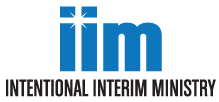Thank you very much, welcome to the Late Show, this is our first show on the air since New York and Washington were attacked, and I need to ask your patience and indulgence because I want to say a few things. And believe me, sadly, I’m not going to say anything new. And in the past week, others have said what I will be saying, here tonight, far more eloquently than I’m equipped to do. But if we are going to continue to do shows, I just need to hear myself talk for a couple of minutes [emphasis added] and so that’s what I’m going to do here. [September 17, 2001, New York City, NY, USA]
And then, for five-and-a-half more minutes, David Letterman poured his heart out about the 9/11 terrorist attacks.
The New “Post-Event Trauma”
We are entering a new post-9/11-type moment in history. According to Barna, church members are flocking back in droves to attend church in person. What Dave got to do in his special monologue, plus the rest of the show with Dan Rather, was good for his psyche. It was welcomed by his viewers. But when I was reminded of that Late Night episode this week, I snapped to attention and thought, “That’s what our church members are going to need. They need ‘to hear themselves talk for a couple of minutes.’”
Have you considered how your church will handle it? “Welcome back! It’s good to see everyone again. Doesn’t this feel good?”—may not be enough. Your speaking from the pulpit, on behalf of your congregation, will be necessary and helpful. But it won’t be enough.
Each person, not just the leader, needs a chance to verbalize what they have experienced—a type of debriefing. And they need to be able to do so in a safe and holy environment.
As a modest proposal, I would suggest that local congregations consider a post-pandemic ritual. We all need a service of reflection or a special gathering to remember what we have been through. Historically, churches have rung bells, or lit candles, to observe special moments. We might also have participated in the more casual burning (or shredding) of our written confessions. What would be something that would allow your members to share, to vent, to mourn, to celebrate, to hold each other up, and to do it in a corporate manner?
Post-Pandemic Observations
· Maybe not in a single service, but over time, at the start of each Sunday morning service, let a few people come forward and ring a special bell. Before, or after, ringing the bell, each person could share a short statement of what they experienced—good or bad. From the praise of “Everyone in my family kept their jobs” to the grief of “We all got sick, and my wife passed away.” Eventually, those returning for their first time to be back physically might be the ones ringing the bell.
· A special song service could include members (some or all) coming one-at-a-time to the altar with a pre-prepared placard, sometimes called “Cardboard Testimonies.” The written words could span the emotions from “My husband found Christ during the Pandemic” to “We are still grieving deeply in the loss of my mom.”
· There could be separate services for grieving and rejoicing, or a single service could start with the painful and end with the joyful. In some churches, it might be okay to allow folks to mix their responses randomly. This could be done in lieu of a singing/preaching service.
· Paint one of the walls in fellowship hall with “dry eraser paint.” During a directed time, let members write, or draw, on the wall. They could express their pain and/or their joy. Different color markers could be used for different emotions. Positive and negative memories could be mixed or grouped. As one writes, or later after everyone has gone, give each person a chance to explain what they wrote or drew. Cover the whole wall.
o In larger congregations, where allowing everyone to speak would be impossible, seat everyone in a small table group with a prepared table leader. Let each person share out loud with their group.
o Eventually, the wall could be erased as the church moves on. On the other hand, a clear coating could be painted over the wall to preserve it for however long desired. Perhaps an artist could create a giant work of art, a mural, by adding finishing touches later to the wall.
Cautions
· Some people might want/need to voice their experience, but they just can’t. The emotions will be too much. Allow someone to speak for them.
· There could be people who would make a mockery of pain that is expressed. If you have such people, you know who they are. The announcements you make, and the tone of the service, ought to take care of that issue. But if not, be prepared to address those people before, during, and even after the service.
· We do not need to be 100% past the pandemic. Keep up with the latest science and proceed as it feels right in your situation.
· You may need to do it again! The Polio Vaccine story makes today’s story feel like déjà vu. An effective vaccine took several years to reach a large minority who ignored the science or believed unfounded rumors. Time your observation for what seems right to your folks, which may have nothing to do with when we achieve true herd immunity.
Every church is different, so plan such a service with many voices contributing to the planning and thinking through the cautions. It may be a Sunday morning is the best time, or it may be better to have it in a special extraordinary venue, even with a giant pot-luck dinner—when it’s wise and safe to do so again. When your leadership thinks it’s the right time, move out!
